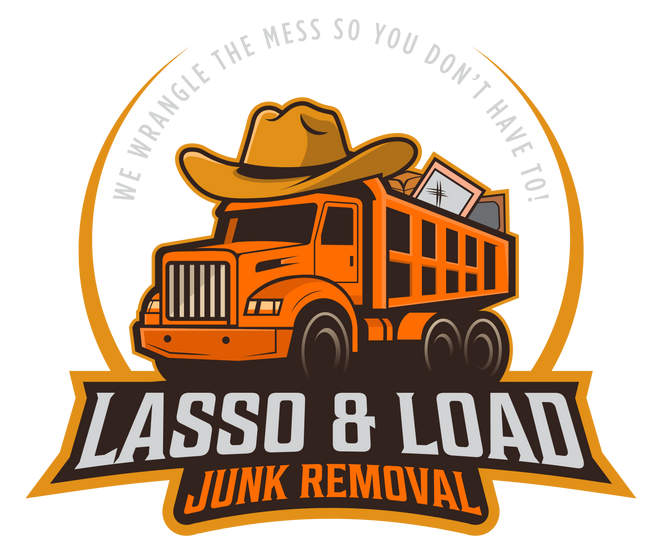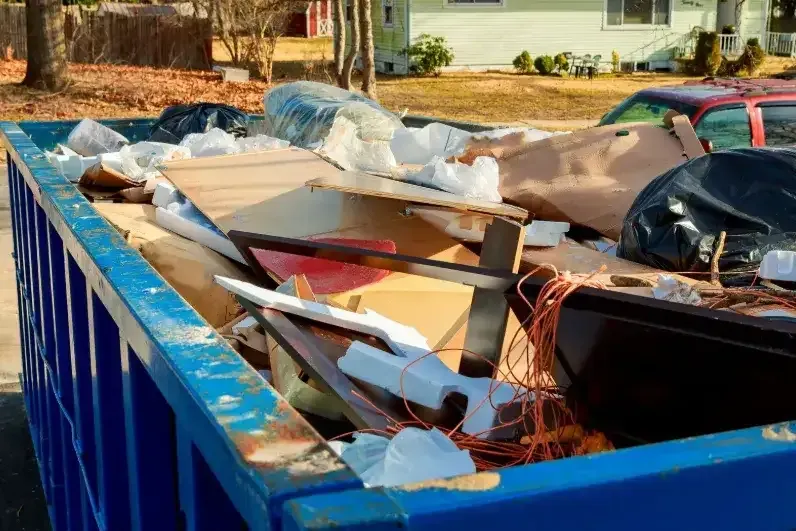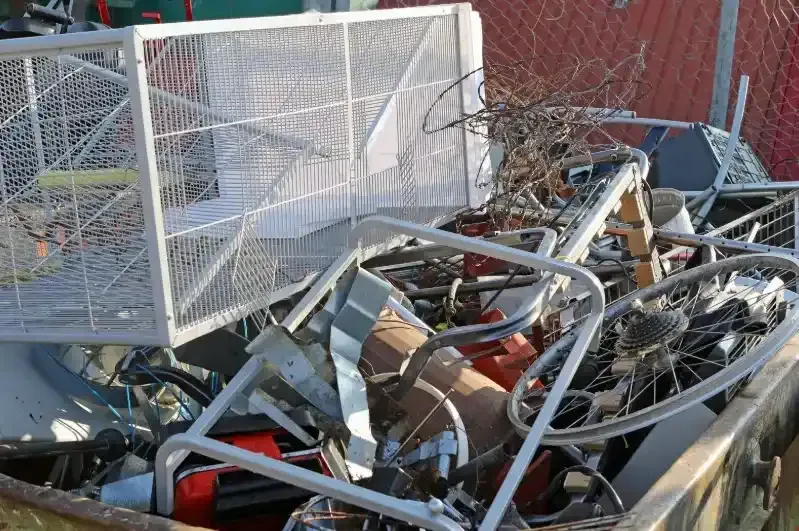The Environmental Impact of Commercial Junk Removal
In an era where environmental awareness is crucial, the commercial junk removal industry finds itself at a pivotal crossroads. The way businesses handle and dispose of waste has significant consequences that extend far beyond just the environmental impact—it affects public health, resource management, and the economy as well. Improper waste disposal can contribute to increased pollution, strain on landfills, and depletion of natural resources. As companies generate waste, the effects ripple through ecosystems, affecting wildlife, natural habitats, and air and water quality.
In response, there has been a growing shift toward more sustainable practices in the junk removal industry, including recycling, repurposing, and reducing waste through eco-friendly solutions. These changes are not only essential for mitigating environmental damage but are also leading to new ways of thinking about waste management. This shift is paving the way for more responsible, environmentally conscious business practices, promoting long-term sustainability across industries and communities.
The Environmental Toll of Traditional Junk Removal
Historically, commercial junk removal has been synonymous with the rapid disposal of unwanted items, often without consideration for environmental consequences. This approach has led to several detrimental effects:

Landfill Overcrowding
The reliance on landfills as the primary destination for commercial waste has resulted in overcrowded sites teeming with non-biodegradable materials. Items such as plastics, metals, and electronics can persist for centuries, leaching harmful chemicals into the soil and groundwater. Moreover, the decomposition of organic waste in landfills produces methane, a potent greenhouse gas contributing to climate change.
Resource Depletion
The disposal of reusable materials signifies a loss of valuable resources. Metals, wood, and plastics, when not recycled, necessitate the extraction of new raw materials, leading to deforestation, mining, and increased energy consumption. This cycle exacerbates environmental degradation and accelerates the depletion of finite resources.
Pollution and Hazardous Waste
Improper disposal of hazardous materials, including electronic waste, batteries, and chemicals, poses significant risks. These substances can contaminate air, water, and soil, endangering ecosystems and human health. The incineration of waste further contributes to air pollution, releasing toxins and particulates into the atmosphere.
Loss of Biodiversity
The encroachment of landfills and illegal dumping into natural habitats disrupts ecosystems, leading to habitat loss and a decline in biodiversity. Wildlife may ingest or become entangled in waste, resulting in injury or death, and the alteration of habitats can have cascading effects on ecological balance.
Embracing Sustainable Practices in Junk Removal
The shift towards sustainable practices in junk removal has gained momentum in recent years, as more businesses realize the long-term environmental and economic benefits of reducing waste. By embracing recycling, junk removal companies are helping divert significant amounts of materials like metals, plastics, and paper from landfills. This effort not only conserves valuable resources but also reduces the need for new raw materials, decreasing the environmental strain of resource extraction. Additionally, many junk removal companies are prioritizing donation programs, where usable items such as furniture, appliances, and electronics are given a second life, reducing waste and supporting communities in need. This commitment to sustainability is transforming the way junk removal companies operate and is becoming a critical part of their mission to protect the environment.
The adoption of green transportation and renewable energy practices is also driving change within the industry. Many companies are incorporating fuel-efficient vehicles and optimizing routes to reduce emissions and fuel consumption. Moreover, some are investing in electric trucks or solar-powered facilities to lower their carbon footprint. These innovations are leading the charge toward a more sustainable junk removal industry, showcasing that responsible waste management and eco-friendly practices are essential components of modern business operations.
Innovations Shaping the Future of Junk Removal
As technology continues to advance, the junk removal industry is undergoing significant innovation that is helping to reduce waste and streamline operations. One of the key trends shaping the future is the integration of digital platforms that optimize scheduling, route planning, and waste sorting. These platforms use algorithms to ensure that trucks take the most efficient routes, saving on fuel costs and minimizing carbon emissions. Additionally, sorting technologies, including automated systems and AI-powered machines, allow junk removal companies to sort and separate recyclable materials with greater efficiency. This not only improves recycling rates but also reduces the contamination of materials, making them easier to process and repurpose.
Another exciting innovation is the development of waste-to-energy technologies, which are helping turn organic waste into valuable resources. Through methods like anaerobic digestion or bioconversion, waste materials can be transformed into biogas, which can then be used as an energy source. This innovation reduces the dependency on landfills and decreases the environmental impact of waste disposal. The future of junk removal lies in these progressive technologies, where the industry plays a pivotal role in creating sustainable solutions for waste management.
The Role of Recycling in Revolutionizing Junk Removal
Recycling is becoming a cornerstone of modern junk removal services, significantly reducing the environmental impact of waste disposal. As junk removal companies focus on sorting materials such as metals, plastics, and paper, they are ensuring that these valuable resources are not lost to landfills. By recycling, they help to conserve raw materials, reduce energy consumption, and lower carbon emissions. This shift towards a circular economy is not only beneficial for the environment but also supports sustainable industry practices that minimize waste and foster resource recovery.
The growing emphasis on recycling also encourages businesses to rethink their waste management strategies. Junk removal companies are increasingly integrating state-of-the-art sorting technologies to separate recyclable materials more efficiently. As a result, these businesses are enhancing their recycling capabilities, improving the overall effectiveness of waste management efforts. By expanding recycling programs, junk removal services are making a tangible contribution to the reduction of waste and promoting environmental responsibility in the communities they serve.
Donations and Repurposing: A Sustainable Alternative to Disposal
Donating and repurposing items is an effective and sustainable way to reduce the volume of waste generated by commercial junk removal. Many junk removal companies are now focusing on identifying items that are still in good condition and can be donated to local charities or repurposed for reuse. This approach helps reduce the amount of waste that ends up in landfills while providing valuable goods to communities in need. Furniture, electronics, and appliances, which might have been discarded, can find a second life, benefiting both the environment and local social programs.
Repurposing goes beyond just donating items; it involves creative solutions to give discarded materials new purposes. Many junk removal companies are partnering with artisans, crafters, and organizations that specialize in upcycling. This practice not only prevents unnecessary waste but also encourages innovation and creativity within communities. By repurposing items, junk removal companies are taking a proactive approach to environmental sustainability and social responsibility, making a real difference in the lives of those who need it most.
Green Transportation: Reducing Emissions in Junk Removal Operations
Green transportation is playing a vital role in reshaping the junk removal industry’s approach to waste management. Many companies are embracing fuel-efficient vehicles or even electric trucks, which significantly reduce the carbon footprint of their operations. By adopting these eco-friendly modes of transportation, junk removal services are able to minimize their environmental impact, contributing to cleaner air and lower greenhouse gas emissions. This transition to green transportation is a critical step toward reducing the industry's reliance on fossil fuels and supporting efforts to combat climate change.
In addition to using cleaner vehicles, optimizing routes is another essential strategy to reduce emissions. Junk removal companies are utilizing GPS systems and digital platforms to plan the most efficient routes, minimizing the distance traveled and maximizing fuel efficiency. This approach not only saves on fuel costs but also helps lower the overall environmental impact of the business. The integration of green transportation methods is setting the stage for a more sustainable junk removal industry that prioritizes both operational efficiency and environmental responsibility.
The Impact of Renewable Energy in Junk Removal Services
Renewable energy is quickly becoming an integral part of the junk removal industry’s sustainability efforts. Companies are increasingly turning to solar panels, wind turbines, and other renewable energy sources to power their operations. By harnessing the power of renewable resources, these businesses are reducing their dependence on fossil fuels and lowering their overall carbon footprint. The use of clean energy is not only a smart environmental choice but also a cost-effective one in the long term, as it reduces energy bills and supports the global transition to sustainable energy.
Many junk removal companies are incorporating renewable energy in various aspects of their operations. Solar-powered trucks, energy-efficient sorting facilities, and wind-powered warehouses are examples of how the industry is embracing sustainability. These initiatives not only help companies reduce emissions but also position them as leaders in the green energy movement. As more junk removal companies adopt renewable energy solutions, they contribute to the growth of the clean energy sector, creating a ripple effect that benefits the environment on a global scale.
Conclusion
The environmental impact of commercial junk removal is significant, affecting ecosystems, depleting resources, and contributing to climate change. However, the shift toward more sustainable practices in the junk removal industry brings hope. By embracing recycling, reusing materials, donating items, utilizing green transportation methods, and adopting renewable energy sources, junk removal services are changing the way waste is handled. These practices not only reduce the environmental footprint but also help conserve valuable resources and promote cleaner, more efficient operations. Moreover, by integrating innovative technologies, such as waste-to-energy solutions and automation, the industry is continuously evolving toward more sustainable models.
This transformation is essential in mitigating negative environmental impacts, offering a solution that aligns with global efforts to combat climate change and preserve natural resources. For businesses and residents in Gwinnett County looking for eco-friendly junk removal services, Lasso & Load Junk Removal is leading the way. Committed to sustainability and community engagement, they offer environmentally responsible junk removal solutions that reflect a deep respect for the planet. To schedule a pickup or learn more about their services, contact Lasso & Load Junk Removal at 404-227-2017 or via email at Lauren.renwickk@gmail.com.









